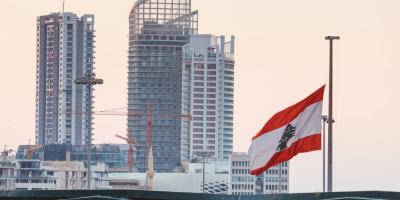The anticipated war in southern Lebanon presents a new zero-sum equation; discussing its outcomes, aside from the disasters, seems unlikely. This implies that there is an exceptional driver outside the war's geography that may not halt it at a designated time and could push it toward the political scene. Consequently, how can this war be viewed from more than one perspective? America is concerned about the war turning into a deadlock similar to the one experienced in Gaza, while Lebanon and the Arab region alternately sense a second Gaza. However, the Lebanese front is more entangled between the battlefield and politics, due to the open geography that allows for an expansive field operation and swift diplomacy available since "Philip Habib," which might prevent the escalation of war and politics within a specific geography and timeframe.
In Israeli streets, there is fear regarding the interplay of interests within Netanyahu's government, raising the question of whether Lebanon can rescue Netanyahu after the realities in Gaza have swept him away into the unexpected, or whether a war in Lebanon, once ignited, will plunge into the unknown. Within Hezbollah and its base, individual humanitarian value disappears, just as it did within Hamas, especially with Khaled Mashal's recent rhetoric that depicted the cost of war, justifying it as a necessity for the safety of the party's structure and idea—similarly, for Hezbollah and all its followers committed to the idea of overthrowing the state, as the party embodies the idea and the individual, not the state and humanity.
In the flexible political language that allows for a broader view of the scene, it is evident that Netanyahu's urgency to go to Gaza has led he and his war associates toward international criminal liability. Had he delayed the war's onset for just a few weeks, the International Criminal Court would have paused to address victims and hostages from 23 countries involved in the known narrative, and thus, one result of the first Gaza war was that Hamas sat waiting for the second hearing from the international court, which in turn rushed Netanyahu and part of his war cabinet to its proceedings. What, then, becomes of the Lebanon War?
Netanyahu's urgent interests sought to alleviate the demonstrations brought about by judicial amendments in Israel that diminished his voice. Therefore, how personal is this aspect of the equation that will become a new deadlock in the world? It is noted that this is not the deadlock brought about by the Korean War, but a political deadlock that will keep political solutions in the Middle East on hold for a long time.
On the field, Israel aims for a war reminiscent of the July 1981 conflict, which was halted by the famous informal agreement between Yasser Arafat and Menachem Begin. Nonetheless, the 1981 war did not yield results; it instead led to the Israeli invasion that reached Beirut in 1982, plunging the region into a prolonged political stupor, which ultimately prompted the first Palestinian intifada—the stone intifada. Thus, what war could not achieve, politics brought forth, allowing the Israeli side to negotiate with the weaker Palestinian side, culminating in the political developments that led to Oslo.
In the internal Palestinian and Lebanese equations today, the subject belongs to a different era, where the past cannot be re-produced in a new image. Going to war with the Hezbollah militia is much like Netanyahu going to war with Hamas, which Mashal's recent speech portrayed as a political bombshell and a dangerous, unexpected upheaval in politics and ideology, calling for mobilization on the West Bank and involving the authority and limited Palestinian resources behind the events of October 7, while viewing human costs as natural. The same theory applies to Hezbollah, which sees material and human losses as trivial compared to the ideological victory. This echoes the remembrance of the millions who perished and the suffering of millions to this day in the equation of the Korean War deadlock, since the idea in this equation was greater than the state and greater than human needs.
What is significant in the political equation is that the ideological knot did not exist during the past decades, which allowed Camp David to succeed, Oslo to prevail despite complexities, and the Wadi Araba agreement to be formed. However, the shifts in the current phase, coupled with the emergence of political Islam in both its forms on the scene, present us with a complex deadlock image. As such, war and its instruments become one of the most perilous hazards in the region. War and ideology represent a bloody world without horizon or solutions, not to forget the extreme Israeli right, the true partner reinvigorating the common phenomenon of extremism in the region.
What can be done to prevent the region from repeating the deadlock of the Korean War, where war ceased there but the people's suffering remains unresolved?




